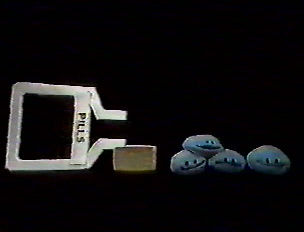March 2, 2009
Disorganized thinking
 As I’ve claimed previously, Big Pharma’s crimes and cover-ups will soon make Big Tobacco’s scandals look like jaywalking.
As I’ve claimed previously, Big Pharma’s crimes and cover-ups will soon make Big Tobacco’s scandals look like jaywalking.
AstraZeneca’s Seroquel trial began last week, and the industry’s criminal antics surrounding anti-psychotics are coming into better focus. Documents introduced as evidence are confirming that, like Eli Lilly with Zyprexa(Kills), AstraZeneca knowingly downplayed the fatal side-effects of their toxic pills. They covered up the fact that Seroquel causes diabetes and massive weight gain, and have been gaming the drug approval process to expand the diagnostic reach of their drugs.
In a move which hits new lows, even for Pharma, documents introduced into evidence reveal sex scandals and conflicts of interest in the approval of Seroquel for treating depression, the burying of unfavourable studies, and deeper insight into the pathological cognitive dissonance underlying Pharma’s logic. Get ’em while they’re hot!
43_Exhibit 15.pdf
There may be a rationale to explain why acutely psychotic patients may gain weight in the short term, following effective therapy. The relief of negative symptoms, apathy, etc, disorganized thinking, may result in return to normal activities like having regular meals.
I see. Blame the weight gain on the crazy people. Gotta love it. I am reminded of the current economic situation, where corporations privatize the profits and socialize the risks/loses. All the good is caused by the drugs, the patients/victims take all responsibility and blame for the bad.
Meanwhile, this week yielded a few more alternate hypotheses on behavioural issues in children:
Are Bad Sleeping Habbits Driving us Mad?
The 3 R’s? A Fourth Is Crucial, Too: Recess
adding to the growing list (nutritional issues, boredom, and increased stress) of plausible explanations for children’s irritability, restlessness, and erratic behaviour.
I thought the scientific method was supposed to be about systematically exploring causal possibility spaces, and iteratively refining our narrative understanding based on critical observation. Pharma’s scientists have seriously lost their way. They have betrayed the sceptical stance at the foundation of scientific knowledge production.
That’s some abstract, theoretical jargon, but the threat here is quite concrete and real. Just ask these horrifically abused elderly patients. People who have never manifested psychotic symptoms are no longer safe!
That future of psychiatry is quite disturbed. They might actually beat
omniscient surveillance to the punch on absolute control over the populace. But heaven help us if/when Big Brother forges an alliance with Big Pharma.
 Filed by jonah at 11:04 pm under dangerousgifts,epistemology,ethics,fire
Filed by jonah at 11:04 pm under dangerousgifts,epistemology,ethics,fire
 1 Comment
1 Comment







 I’ve been drafting this post on Frontline’s provocative investigative piece
I’ve been drafting this post on Frontline’s provocative investigative piece 
